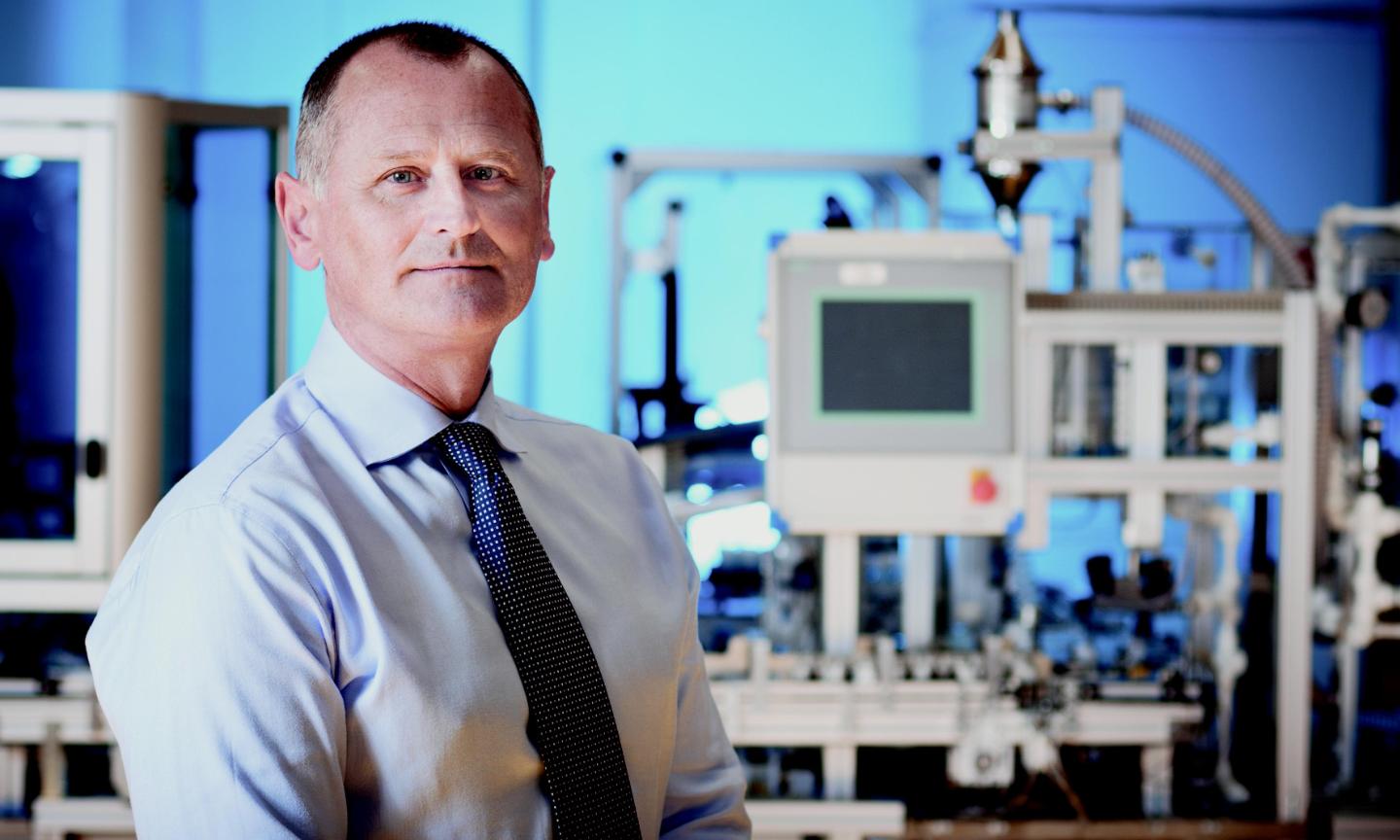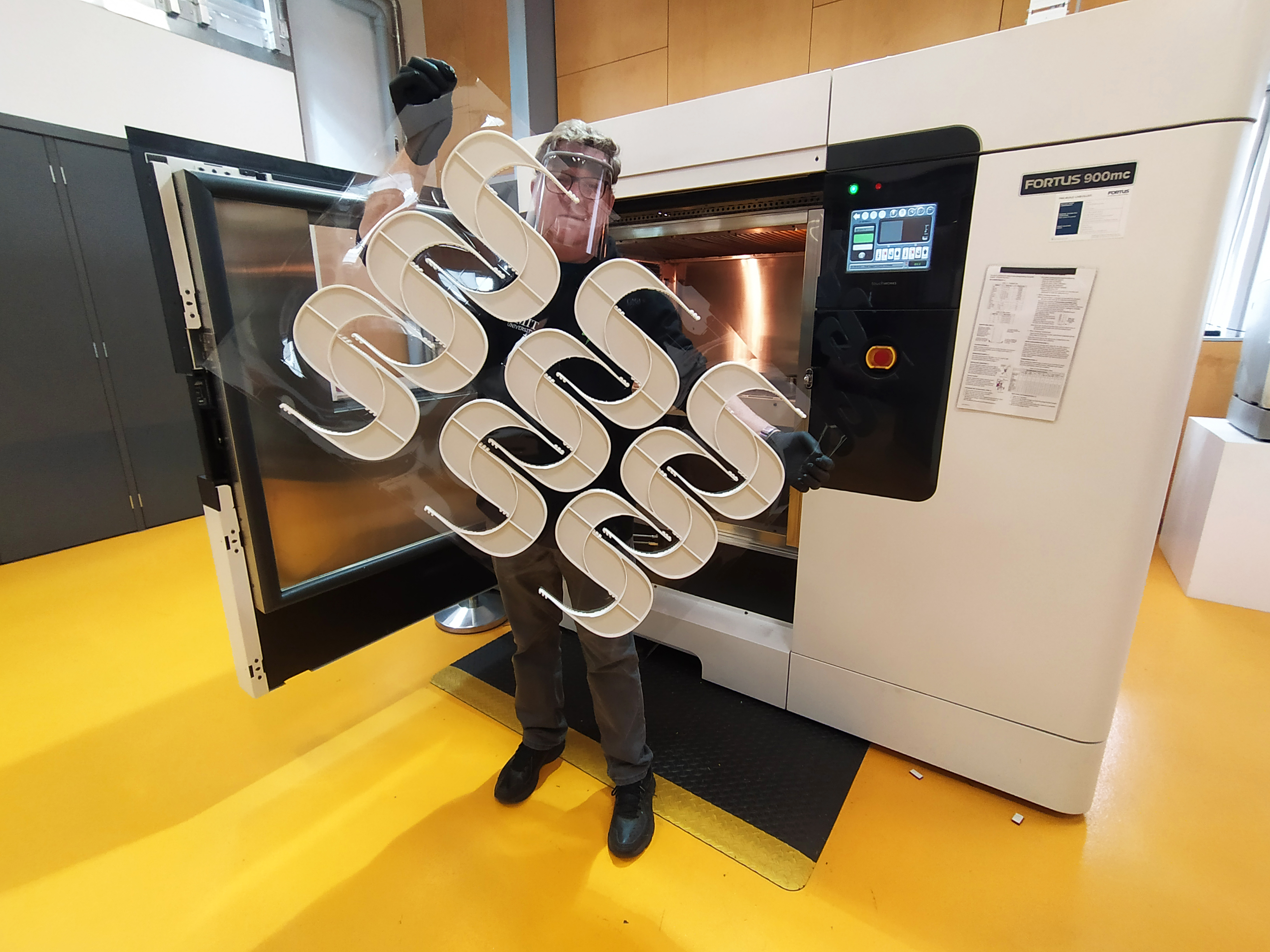 Professor Aleksandar Subic says the deal gives Australian companies access to some of the world’s best experts and technologies critical for Industry 4.0 transformation.
Professor Aleksandar Subic says the deal gives Australian companies access to some of the world’s best experts and technologies critical for Industry 4.0 transformation.
RMIT University is partnering with Europe’s leading 3D printing institute to support the transformation of Australian manufacturing.
The memorandum of understanding with Fraunhofer Institute for Material and Beam Technology IWS covers staff and student exchanges and joint research projects with Australian companies.
The applied projects will focus on using advanced 3D printing technologies to manufacture and repair high value-added products.
RMIT’s Deputy Vice-Chancellor of Science, Engineering and Health, and Vice President for Digital Innovation, Professor Aleksandar Subic, said the deal gave Australian companies access to some of the world’s best experts and technologies critical for Industry 4.0 (i4.0) transformation.
I4.0 describes the trend towards cyber-physical systems with high levels of automation, data driven processes and digital manufacturing technologies like 3D printing.
“Germany is a key global driver of i4.0 technology and Fraunhofer IWS is the leading applied 3D printing institute in Europe,” Subic said.
“It’s exciting to have the best in Australia partnering with the best in Europe, working together on high impact, globally relevant projects with industry.”
He said the partnership was also a significant step towards establishing a world-leading 3D printing technology centre within the RMIT Advanced Manufacturing Precinct.
 Professor Aleksandar Subic says the deal gives Australian companies access to some of the world’s best experts and technologies critical for Industry 4.0 transformation.
Professor Aleksandar Subic says the deal gives Australian companies access to some of the world’s best experts and technologies critical for Industry 4.0 transformation.
Director of Fraunhofer IWS, Professor Christoph Leyens, said the agreement was the first of its kind they had signed in Australia.
“The decision was an easy one, considering RMIT’s Centre for Additive Manufacturing is one of the top addresses for additive manufacturing worldwide,” Leyens said.
“Our primary goal through this partnership is closer contact with the Australian market where there is so much latent potential for additive manufacturing, while at the same time fostering student exchange and joint PhD supervision that we know will be of high quality.”
Once safe to travel, Fraunhofer IWS researchers specialising in metal additive manufacturing will arrive in Melbourne to work alongside RMIT researchers and postgraduate students on industry-engaged projects.
 The partnership will provide industry-focused training for Australia’s next generation of additive manufacturing experts.
The partnership will provide industry-focused training for Australia’s next generation of additive manufacturing experts.
Meanwhile, RMIT postgraduate students will have opportunities to travel to Germany for research at Fraunhofer IWS.
“Germany is at the core of global i4.0 innovation, but Australia is developing rapidly through a range of national programs and global partnerships such as this one,” said Subic.
“This partnership will serve as a conduit between Australia and Germany to tap into that rich vein, which will support Australia’s manufacturing transformation at a critical time, while also training the next generation of local additive manufacturing experts.”
The announcement follows a recent MoU with Siemens and Festo designed to drive workforce transformation for i4.0 in the Australasian region, including the establishment of an Industrial Digital Innovation Hub at RMIT.
Setting the course for Australia’s manufacturing future
Director of RMIT’s Advanced Manufacturing Precinct and Centre for Additive Manufacturing, Distinguished Professor Milan Brandt, said after years of decline across much of Australia’s manufacturing sector, there were now clear opportunities for Australia to carve out a new niche.
“We cannot compete with labour costs on low value, high volume manufacturing, but Industry 4.0 presents us with a real opportunity in high value-add technology, such as rapid repairs of metal parts in mining, defence, transport and renewables, so that’s where we need to head,” Brandt said.
“Our future will be in collaborating nationally and globally, codesigning and co-creating advanced manufacturing solutions, and being agile in providing those solutions as they’re needed by industry.”
Brandt said 3D printing technology was perfectly suited for tailored, agile responses to industry needs, as highlighted through recent work by AMP staff in printing face shields for frontline healthcare workers.
 RMIT’s Paul Spithill with a batch of the 3D printed plastic face shield frames.
RMIT’s Paul Spithill with a batch of the 3D printed plastic face shield frames.
“Faced with potential PPE shortages earlier this year when coronavirus first hit our shores, we optimised open source designs for face shields and printed hundreds of them for trials in local hospitals within days,” Brandt said.
“Within a couple of weeks, we had supplied more than 3,000 to meet demand and even tailored different styles on request for different specialists.”
Online collaborations between RMIT and Fraunhofer IWS researchers will begin immediately, with international exchanges planned for next year.
Banner image: Fraunhofer Institute for Material and Beam Technology IWS in Dresden, Germany. credit: Martin Förster.






